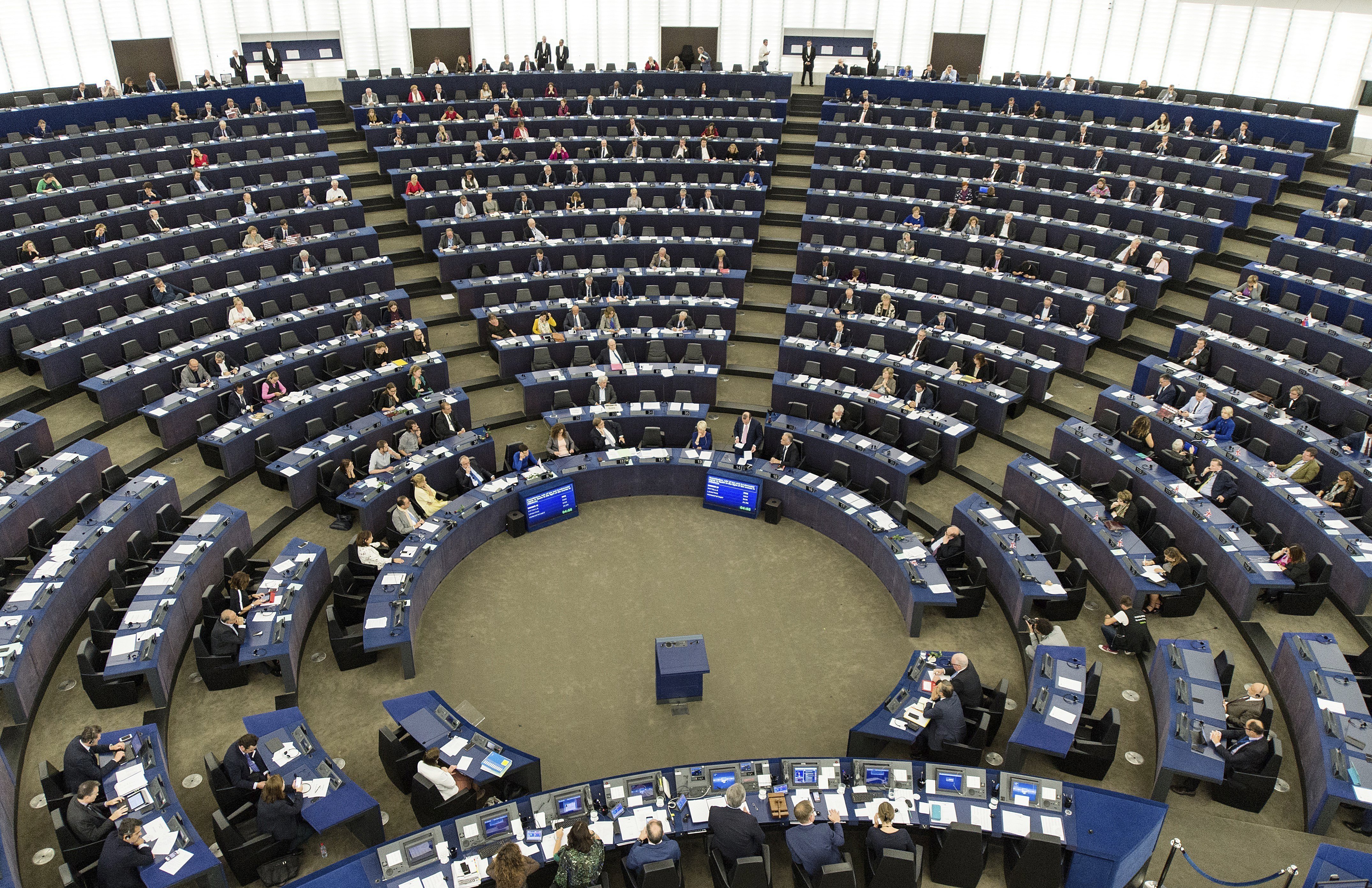The situation in Catalonia has come up for the first time in the European Parliament today. After last Sunday's events, where police repression against the referendum left almost 900 injured, the Parliament has unanimously rejected the police operation. All the groups condemned the violence and mentioned those injured. On the other hand, they also called for dialogue between the Spanish and Catalan governments, within the framework of the Spanish Constitution and the rule of law.
The debate took place at the highest level, with speeches from the vice-president of the European Commission and the presidents or vice-presidents of all the Parliament's groups. The European Commission, for its part, however, has rejected playing mediator between the Catalan and Spanish governments, as called for by the Greens/EFA (Greens-European Free Alliance) and GUE-NGL (European United Left–Nordic Green Left).
The debate started with remarks from the First Vice-President of the European Commission, Frans Timmermans, who defended the rule of law, but also noted that "violence doesn't solve anything in politics... it can never be used as a weapon or instrument".
Timmermans said that Europe is based on democracy but also in "respect for the law", noting that they cannot "exclude each other". As such, he said the European Commission had called on "all actors to move quickly from confrontation to dialogue".
Speaking for EPP (European People's Party, which includes Spain's ruling PP party), the group's president, Manfred Weber, started remembering the injured and rejecting the violence in Catalonia. He then went on to be very critical of the Catalan government. "It's unacceptable that the Catalan government encourages its citizens to break the law", said Weber, threatening Carles Puigdemont's government that if they declare independence "they would leave Spain and the European Union". Weber also gave a strong defence of the rule of law and the unity of Spain.
The president of S&D (Progressive Alliance of Socialists and Democrats), Gianni Pittella, condemned this Sunday's violence and described the police's actions as "disproportionate". He called for dialogue and criticised the management of Mariano Rajoy's Spanish government of the Catalan crisis. He also criticised the Catalan government, however, saying that it had no legitimacy to make a declaration of independence and warned that doing so would be "adding fuel to the fire" and would bring "new disasters".
Guy Verhofstadt, president of ALDE (Alliance of Liberals and Democrats for Europe), described the police violence seen during the referendum as "deplorable", despite being "based on a ruling of a court". He, however, strongly criticised the vote itself, saying that it lacked "legitimacy" and that "the result of this referendum was already known before it began". Verhofstadt also said, invoking the response to the 1981 attempted coup d'état, that "nobody has to give any lesson in democracy" to Spain. He warned that going ahead with independence based on the result of the referendum would cause "a fracture" in society and, as such, he called for "dialogue and cooperation" and an end to the escalation of tensions.
Both the Greens/EFA and GUE-NGL groups asked for the European Commission to get involved in the Catalan crisis and act as a mediator between the two government, a proposal rejected by the Commission. Patrick Le Hyaric (GUE/NGL) strongly condemned the violence and criticised the EU for not having commented clearly against the police actions on Sunday. Le Hyaric reminded that peoples have the right to self-determination, called for dialogue and called the Spanish government "cold and weak".
Ska Keller (Greens/EFA) went further and said that 1st October will be remembered as a "sad day... not just in Spain, but all over Europe". She described the police actions as "unacceptable", "disproportionate" and "unjustifiable". She was also very critical of Mariano Rajoy's response, saying that he "refused the dialogue that was offered", accusing him of making the situation worse. The "Catalan crisis... needs to be solved politically and not by police forces" said the leaders of the European Greens, who called for dialogue and mediation.
As for the Euroskeptic groups (European Conservatives and Reformists, Europe of Nations and Freedom, Europe of Freedom and Direct Democracy, and Steven Woolfe, former member of the British UKIP party, speaking on behalf of the Non-Attached Members), took advantage of the situation to criticise the European Union. They said the EU has a "double standard" depending on the state under discussion, even describing it as "hypocritical" and "disappointing" for Catalans. They all also criticised the police violence on Sunday.

